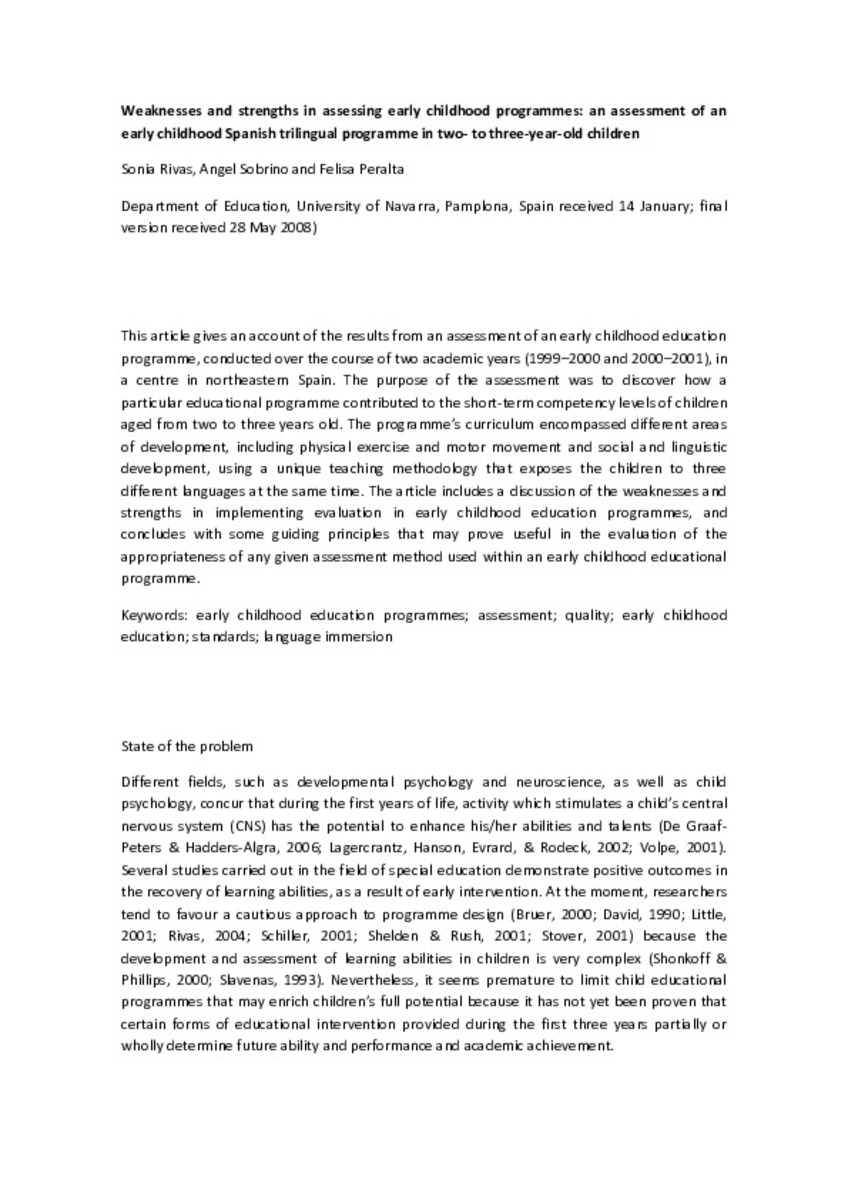Weaknesses and strenghts in assessing early childhood programmes: an assessment of an early childhood spanish trilingual priogramme in two- to three- year- old children
Keywords:
Early childhood education programmes
Language immersion
Early childhood education
Assessment; quality
Standards
Publisher:
Taylor and Francis
Citation:
Rivas Borrell, S.; Sobrino Morrás, Á. y Peralta, F. (2008). ""Weaknesses and strenghts in assessing early childhood programmes: an assessment of an early childhood spanish trilingual priogramme in two- to three- year- old children"". Early Child Development and Care, 180 (5), 685-701
Statistics and impact
0 citas en

0 citas en

Items in Dadun are protected by copyright, with all rights reserved, unless otherwise indicated.










